|
Happy New Year, Viscerals! Have you limped to the finish line, as we have? It feels more like we're celebrating the end of two years, of 2020-times-two, a double-sized issue of clustercuss du pandémie, of lengthy lockdowns followed by extreme socialisation -- of a world seemingly trying to pack two years worth of events into the last two months of the year -- ending with a hair-trigger game of COVID-test-Russian-Roulette, as every place you visit could find you abruptly canceling plans to stand in a line (or sit in a car) for hours on end then getting results back two days later only to discover what you already knew: you were fine. It's a weird new world, and folks shouldn't be shocked if some of us need a goddamned nap. But some incredible things happened to us this year, too. Our new feature film, Apparitions, scored a distribution deal to be released on DVD and VOD in the UK and US by 4Digital Media, thanks to our sales agents at OneTwoThree Media (it'll be out February 15, 2022 in the US, with a UK date still to be announced), with smaller streaming-based deals in Malaysia and Benelux (the combined region of Belgium, the Netherlands and Luxembourg -- no, I didn't know that was a thing either). In a development neither of us never dreamed would occur, Pez and I bought our first home together, a lovely apartment in a location we've loved for years and sees us geographically closer to many of our friends. And to close out the year, Apparitions had its World Premiere screening in our hometown, in front of many cast and crew members, at a cinema we've attended as patrons hundreds of times, as part of the program of what is arguably Australia's top genre film festival, Monster Fest! The folks who run the fest -- Grant, Jarret, Ben, Kim and so many others -- treated us beautifully and the screening (and post-film Q&A, which saw Pez, our star Cate O'Connor and I chatting to Jarret) was a dream evening. The response to the film was overwhelmingly positive -- the audience really got into it, gasping, laughing and cheering at the appropriate moments! -- and, as you can see from the photos below, a fine time was had by all. Our deepest thanks again to the folks at Monster Pictures for making this happen! So, after a year in which we've felt battered and bruised yet blessed, what movies took my fancy, I hear you ask? Read on... Paul Anthony Nelson's Top 20 New Discoveries of 2021While #lockdownlyfe persisted throughout 2021, this year wasn't quite as much of a bounty as 2020 was for new discoveries, but there were some absolute bangers and revelations. SPECIAL MENTION: THE 7 UP SERIESAs I limit my year-end top 20 lists to feature films, my absolute favourite first-time watch of the year isn't technically eligible: Michael Apted's astonishing document of 14 "average" Brits across their entire lives, from age 7 to 63 (thus far), in the films 7 Up (directed by Paul Almond), 7 Plus Seven, 21 Up, 28 Up, 35 Up, 42 Up, 49 Up, 56 Up and 63 Up (all directed by Apted, whose passing on January 7th prompted us to finally throw this on; all episodes are currently available in Australia on the SBS On Demand streaming platform). Frequently funny, moving, insightful, aggravating and never less than absorbing, Apted used this series as a way to examine class in the UK -- does a person's social class or free will determine their life's path? -- and while he's been criticised at times for certain lines of questioning as the series has continued (mainly around gendered lines, or trying to "cast" certain people in clichéd roles), for the most part he lets his subjects have the floor on who they are, why their lives have taken their course and where they aim to be. It must be incredibly confronting to have your life held up to the world every seven years to see how far -- or, worse still, not -- you've come each time, like a notched height chart on a door jamb for all to see, but these folks are wonderful for coming back and doing it every single time, even when some clearly have an agenda for doing so (like, say, a Bulgarian charity or a local folk band to promote), and they're never less than honest. I'm not surprising anyone by saying it's a landmark work, but it really is an essential document of what it's like to be a human (of a certain ethnicity, as all but one of the participants are white; one of the series' few major missteps) in the modern world. 20. PARADISE LOST: THE CHILD MURDERS AT ROBIN HOOD HILLS trilogy (1996-2011) An unspeakably horrifying child triple-murder leads to an a horrifying miscarriage of justice, robbing three teenage boys of their young lives, rounded up simply for being different in their Arkansas hive of Christian repression, with only a coerced confession connecting them to the crime in any way. Directors Joe Berlinger and Bruce Sinofsky get astonishing access to the charged teens, the families of them and the victims, and both defence and prosecution teams, allowing some folks enough rope to hang themselves, exposing the state's case for the reasonable-doubt minefield it is and revealing the poor, bewildered kids at the centre of this whole sad, emotional, discriminatory circus. All three films make a poignant, scary document of growing up different in a small rural town under the thrall of religion… and these kids were white… and straight. Could you imagine if they were black or gay under the same circumstances? I suspect they may not have survived this long. There have been a lot of dark, disquieting mirrors turned upon America’s heartland in documentary, but this is certainly one of the most exhaustive, and damning. 19. PRIDE AND PREJUDICE (1940) I’m no Austen scholar — and I should admit now, I’ve never seen any other screen version of this story (Bridget Jones’ Diary aside) — but I adored this! Laurence Olivier is note-perfect as Mr Darcy, Greer Garson is a fun Elizabeth Bennet, and this is clearly a studio production that’s had the full arsenal thrown at it, but there’s also a genuine joy and warmth running through it all, as well as the expected Austen wit (delivered via the typewriters of Aldous Huxley and Jane Murfin). Its truncated adaptation and lavish-but-apparently-not-period-accurate costumes may rub purists the wrong way, but for anyone else, this is a real Golden Age gem which should be much wider seen. 18. THE RITE (1969) This lesser-known made-for-Swedish-TV chamber play is a superb hidden gem among Ingmar Bergman's filmography, a riveting close-up dramatic parry-and-thrust between its cast of four, driven by evolving motives and shifting perspectives, examining artistic temperaments, state-imposed censorship, the morally outraged and the often complex psychological relationship that ensues between them and those they wish to ban. Like much of Bergman's work, it's often disarmingly funny and unpredictable, leading to a final performance piece that's startling in its form and retribution. If you're even vaguely into Bergman, seek this out. 17. STARDUST (2007) A delightful modern screwball comedy in fantasy fancy dress, Matthew Vaughn's film is a very Neil Gaiman spin (adapted from Gaiman's novel by Vaughn and his regular screenwriting cohort Jane Goldman) on fairytale lore that’s cheekily inventive, with massive set-pieces and lavish design aplenty, unleashing an all-star cast who are clearly having a ball — especially Pfeiffer and De Niro, the latter in a surprising role which sees him more nimble, energised and, well, awake than he’d been during each decade either side of this — alongside a murderers row of UK comedy legends. 16. WORD IS OUT: STORIES OF SOME OF OUR LIVES (1977) Beautiful, essential document of gay men and women expressing the truth of their lives and experiences to camera in a safe space, something incredibly brave for them to submit to in mid-1970s America, seeing at that time (depending upon where you lived) you could still be fired from your job or run out of town due to being gay. Not only a snapshot of lives at a certain period of time, but also a reclaiming of image, a breaking of stereotypes and a celebration of people seeing a long-overdue change in attitudes and legislation finally beginning to shift, daring to envision a future in which they can openly be themselves. Candid, affectionate and frequently amusing, the filmmaking is basic and unfussy as the interviews themselves are deservedly placed centre-stage, and, for this perspective alone — gay filmmakers documenting ordinary gay Americans — it's a landmark. 15. THE HOT ROCK (1972) Hilarious, slow-burning heist-comedy-thriller, adapted by the great William Goldman, from on a Donald Westlake novel, about a professional (Robert Redford) surrounded by knuckleheads, trying to lift a diamond from a museum for a prissy African aristocrat (the amazing Moses Gunn). Once you realise what this is really up to — that it's not about one heist, but rather a domino effect of heists committed to fix the fuckups from each heist before it — that it becomes seriously delightful, and thrillingly fresh within the heist sub-genre. I wasn't wild about Quincy Jones' score at first — early on it seems to work seperate from, not in concert with, the film — but in the second half, it's pitch perfect. The film is also full of glorious NYC locations and attitude, and throws increasingly wacko elements into the mix (which I won't reveal here) as each robbery gets more absurdly difficult from the last. 14. THE OLD DARK HOUSE (1932) My top "Shocktoberfest" Halloween discovery this year, this (along with The Invisible Man and Bride of Frankenstein) confirms director James Whale's role in perfecting the horror-comedy in damn near its earliest form. Others had tried, but Whale not only displays an attention to his characters and their interaction uncommon for horror of the time (or since), but a cheeky mean streak that makes the laughs sting. The entire cast are wonderful, the writing is sharp, the cinematography and sets are as shadowy and atmospheric as any of the best Universal chillers and, as audiences in '32 struggled to grapple with, impressively ahead of its time in the way it deploys satire and shifts tones between drawing room mystery, nascent screwball comedy and spooky funhouse horror -- and all in a brisk 72 minutes. 13. HOWARD'S END (1992) 12. ROOM WITH A VIEW (1985) 11. REMAINS OF THE DAY (1993) In what might be the year's biggest shock development, 2021 was the year I became... a Merchant-Ivory fan? I'd long written their films off as stodgy stiff-upper-lip costume bores (mostly due to others' films of the same settings and sub-genres), but this was the first time I'd seen any... and I was astonished. Howard's End starts out as a funny and delightful portrait of a good-natured family of British oddballs on the fringes of aristocracy, before edging into a cutting indictment of a more modern form of privilege, one able and all too willing to destroy those who might want to share the wealth. Room With a View is a breathtakingly shot, frequently hilarious romantic comedy about a woman who finds that embracing life's chaos may just bring happiness, with one of the most unexpected (triple!) male nude scenes you'll ever see. Perhaps my favourite of the three, Remains of the Day is a tale of bottled-up passion that is quietly devastating, yet also a beautiful dissection of class, servitude and (especially pertinent today) how people in rich and privileged bubbles can find themselves seduced by fascists. Their films are so beautifully crafted, so surprisingly lively, the way director James Ivory, screenwriter Ruth Prawer Jhabvala and creative producer Ismail Merchant dig into British class traditions with affection and disdain in equal measure, and explore bygone eras to reflect timeless truths, is strong, always compelling and, shockingly, ferociously entertaining. 10. VANYA ON 42ND STREET (1994) Louis Malle's final film as director sees him filming a bunch of actors rehearsing a play in an old Broadway theatre... but what a play (Chekov's blindingly witty Uncle Vanya), what actors (a roll call of America's finest stage and screen thesps) and what a theatre (the then-abandoned New Amsterdam Theatre). Warm and inviting to start, settling into a groove quickly and riveting to the end, this is a beautiful way of doing a Vanya for screen without all the period bells and whistles, getting in close and intimate with the actors and their characters as only cinema can, lit subtly but beautifully and shot on 35mm. Among the excellent cast, Larry Pine and Brooke Smith are revelations (why don't more films give these two more to do??). What I'm saying is, this was a delight and I could watch a series of them. 9. LORNA (1964) From its zooming opening shot onwards, Russ Meyer's "Drive-In Tennessee Williams" melodrama, seething with passion, hate, lust and desperation, delivers a (double-barrelled, of course) shotgun blast to the face, shot in stunning black-and-white, supported by the astonishing physique of young Lorna Maitland (real name: Barbara Ann Popejoy) and the surprisingly good performances of its supporting cast. It's all pitched to the back wall, shouty, sweaty, campy and heaving, with ample shots of ample Lorna frolicking, but when its ending arrives, the desolate feeling of loss and poignancy it leaves you with might be its biggest shock of all. One could write volumes about the sexual / gender politics of this film, Meyer, his characters and the way it reflects 1960s post-war America, especially in regards to religion, patriarchy and poverty. I'd love to know how this hit its audience in '64. Right between the eyes, is my guess. 8. PARTING GLANCES (1986) This indie New York-set gay rom-com-drama was the sole feature by its writer-director, Bill Sherwood, who died of AIDS in 1990. From the jump, there's a terrific command of tone, a snap to the dialogue and a natural authenticity to the relationships and performances, which only levels up when Steve Buscemi (in just his second film role) enters the fray... and it's all steeped in a sublime '80s New York City vibe. As the lead couple grapple with one of them moving to Africa for work, not to mention the wrecking ball their AIDS-stricken friend (Buscemi, the ex of the guy staying home) represents, most of the characters end up at a party, one of those Soho affairs filled with the art and queer crowds, that goes for a good half-hour... and it's pure bliss, filled with intimate conversations, pickup attempts and eccentricities. (And the closest I came to missing parties during lockdown.) Funny, romantic, snappy, insightful and adorable as hell. 7. MEMORIES OF MURDER (2003) Bong Joon-Ho's early procedural, loosely based on a real-life case (unsolved until 2019!), displays the exquisite tone-shifting skill that most defines and distinguishes South Korean cinema, with Bong at the pointy end of that pack. (Plus, y’know, Song Kang-Ho.) As well as obsession, frustration and sloppy policing, the way this film explores the casual police brutality of the region in scenes that are built as comic set-pieces, daring us to laugh while clearly wanting us to understand how suffocatingly awful the whole system is/was, is so audacious and confronting. Likewise, it skilfully folds in the story of emergent female Officer Kwon (Ko Seo-Hie) to reflect Korea’s casual sidelining and, eventually, (still?) begrudging acceptance of women as being equally skilful and valid in assuming positions of authority, contrasting her with the abused, discarded victims (even having her dress as one to flush the killer out). Superb filmmaking. 6. GUARDIANS OF THE GALAXY VOL. 2 (2017) Kicking off with the best opening sequence of any Marvel film, James Gunn proves that Guardians of the Galaxy was no fluke, delivering the humour, dynamics and thrills that made the original work so well, while imbuing it with an even more resonant subtext about what it means to be a family, a parent, a son, and why you probably shouldn't idolise or pin your hopes on an absent parent (or leader) — the emotional bombs this film drops are shockingly moving — adding new members of this most oddball family of misfit toys, while deepening and even re-characterising others. It's also colourful, hilarious — another masterclass in mining comedy from character — and brilliantly reverses the "Chosen One" trope in a way that feels earned, while thumbing its nose at a tired convention. Sure, it runs about 10 minutes too long, but this is a pure delight that stands shoulder to Groot with the first film. Bring on Vol. 3. 5. CITY LIGHTS (1936) Decided to break into some long-long-overdue Chaplin, and was richly rewarded. His fifth feature is resolutely silent of dialogue -- sound was already a regular fixture of movies by that point — and shows just how sophisticated his storytelling had become. Essentially a romantic drama about a blind woman in love with a kind vagrant she believes to be rich, but punctuated by brilliantly constructed and staged set-pieces that, a decade-and-change earlier, would’ve powered their own one-or-two-reelers. But what really lands here is the emotion; again, Chaplin proves the master of crafting the simplest of emotional stories, built upon a premise that might have sounded creaky even then, ripe for unbridled sentimentality, and making them feel honest and essential — even, at times, borderline distressing — before giving the audience what seems like a happy ending, but is actually something far more powerful: a glimpse at hope. 4. MONA LISA (1986) Big-hearted and bruising crime-adjacent drama with complex, conflicted, painfully human characters who reveal the best and worst of themselves (often in the same scene); in other words, the kind of film they don't really make for cinemas anymore. Hoskins has never been better, as the old-world chancer who struggles with the (under)world he's been released into, his place in this world and the beguiling sex worker he's been charged to look after (Cathy Tyson, in an incredible performance that matches Hoskins beat for beat). Not to mention Robbie Coltrane, a delight as a mechanic and budding detective novelist who Hoskins seeks counsel with, and Michael Caine, whose ice-blue eyes have never seemed so cold as he eschews his usual ingratiating tricks to inhabit one calculating prick of a gangster. Imbued with heart, humour and hurt, this marks a still-unsurpassed high point for director/co-writer Neil Jordan. 3. THE KID (1921) There's a case to be made that Charles Chaplin is cinema's greatest-ever filmmaker. "Beauty in simplicity" personified, his debut feature film, as Hollywood’s first true multi-hyphenate — he wrote, produced, directed, starred and composed the score — is a perfectly calibrated, timelessly charming winner (even with those oddball dream sequences). A slapstick comedy that pulls double duty as a “social issues picture” isn’t the easiest thing to pull off, but Chaplin walks the line superbly, putting on a masterclass of comic staging while harnessing the megaton secret weapon that is Jackie Coogan (as the “kid” of the title), who plays every scene with a mischief and emotional honesty (as does his co-star and director) that counteracts all sentiment with truth — and, always never far away, hilarity. Perfectly paced and always relevant, 100 years on, The Kid remains a peerless family comedy. 2. NIGHT MOVES (1975) My kind of movie in every way: hazy mid-'70s L.A./Florida mood, electric dialogue (see: any acerbic sentence that tumbles from Jennifer Warren's mouth), full of grounded characters in heightened situations, a tight plot, a world just on the right side of skeezy, populated by oddball burnouts, and culminating one of those downbeat '70s endings which defies easy resolution and seems the only way out. Gene Hackman's Harry Moseby is a great lead; an ex-NFL star turned private eye, struggling to fit the role of husband that marriage has demanded of him, yet no longer the dashing ex-sportsman his wife married, but a broken-down, cynical guy who spends long nights snapping cheating partners and chasing runaways across state lines. Moseby's moral enough to sidestep the advances of a flirtatious teenager (a fun Melanie Griffith) and chide her gross stepfather for lusting after her (Stepfather, leering at Griffith: "There oughta be a law." Moseby, disgusted: "There is.") but not above sleeping with that guy's wife (Warren, who's magnetic), which, given this is a neo-noir, might not be the best idea he ever had. Just about perfect. 1. BETTY BLUE (1986) Jean-Jacques Beineix's 1986 magnum opus of young love, hedonism, artistic inspiration and mental illness may be an acquired taste for some, but (seen in its 185-minute director's cut) I found it exquisite in every way; deeply human, breathtakingly shot, disarmingly funny and ultimately heartbreaking. Novelistic in design, it is structured into vignettes, detours into oddball narrative sidebars which illuminate character, and gives every character an inner life, etched with warmth and empathy, even if the sense of dread that threatens to blow their world apart never truly leaves. Beatrice Dalle is astonishing on debut as the initially bratty, increasingly bipolar Betty and Jean-Hugues Anglade is beautiful and open-hearted as her devoted boyfriend, who believes if he just loves her enough, gives her everything she needs and stays by her side, it will be enough to hold her together and save her, not knowing he's on a hiding to nothing. It's a five-course meal of a film that, if you vibe with it, will hit you like a ton of bricks. ...and now... for the main event... Paul Anthony Nelson's Top 20 Films of 2021Given Melbourne cinemas were, again, closed for much of the year, and my taste for films skewing more toward older fare this year, I wound up seeing 82 new release films in 2021, the least I've seen in recent memory; much less than 2020's 90, and even less than my previous lows in 2018 and 2017 totals (85 each year). I've not yet gotten to see Bad Luck Banging Or Loony Porn, Being The Ricardos, Belfast, C'mon C'mon, Don't Look Up, Drive My Car, Dune, Encanto, Eternals, Flee, The Green Knight, The Hand of God, A Hero, House of Gucci, King Richard, The Last Duel, The Lost Daughter, The Matrix Resurrections, Memoria, Nightmare Alley, Passing, Petite Maman, Quo Vadis Aida?, Red Rocket, The Scary of Sixty-First, Shang-Chi and the Legend of the Ten Rings, Spider-Man: No Way Home, Stillwater, Spencer, Summer Of Soul, Val, The Velvet Underground, West Side Story, Zola or many other buzz titles you might be thinking about. (Remember, this is Australia, we still get most stuff months later than its host nation. I've included a list of what I did see at the bottom of the page.) As always, I define a "new release" as a feature film (60 minutes and over) intended for theatrical, streaming or home video release which had its premiere paid public release (via cinemas, streaming, VOD, home video, festivals or galleries) in Australia during 2021. To give you an idea of where my head is at, I only loved 15 of the 82 new films I saw this year, as opposed to 30 of 90 last year; across the board, I found 2021 a much less exciting year for cinema than 2020. So... may we start? Honourable Mentions Molly Reynolds's elegiac documentary about one of Australia's greatest-ever actors, David Gulpilil (who sadly passed away just month's after the film's release), My Name is Gulpilil; Natalie Morales and Mark Duplass' charming tale of friendship in the COVID era, Language Lessons; Jane Campion's darkly mesmerising, two-films-for-the-price-of-one western The Power of the Dog; and a double-feature of musicals: Jon M. Chu's effervescent, disarmingly moving adaptation of Lin-Manuel Miranda and Quiara Alegría Hudes' stage musical In The Heights and Leos Carax's screen vision of Sparks' cheeky, mad rock opera, Annette, headlined by another stunner of a performance from Adam Driver. THE TOP 20#20: SET! Expected a standard-issue, Netflix-style quirk-doc, and a slow start had me worried… but was delighted when it soon became the best Christopher Guest film not made by Christopher Guest. Even though it’s dealing with real-life people, in its singularly bizarre milieu (competitive table setting) it finds exactly the kind of behavioural comedy, obsessive commitment, unchecked narcissism, artistic ambition and surprising skill Guest’s films are known for — and, in many of its subjects, a big-hearted sweetness those films sometimes lack. I suspect competition-based subcultures share many a thread of DNA, but director Scott Gawlik’s ability to give these folks the space to be themselves, without mocking them — the humour and editing choices are driven by human drama and all-too-recognisable competitive behaviour and quirks — shouldn’t be underrated. A delight! #19: BLACK WIDOW Marvel's return to cinemas is appealingly ground-level, builds its characters economically, introduces a terrifying threat and, in perhaps the film's biggest surprise — considering Cate Shortland's very non-action background — the action scenes are exciting, even visceral, for this kind of blockbuster. Johansson finally gets the send-off she deserves, and her dynamic with her nutty makeshift family of super-spies (Florence Pugh is outstanding as ever, David Harbour is a joy and Rachel Weisz beautifully droll) is the backbone of the movie, leading to one or two of the most emotional scenes in any of these films (thanks to Pugh). While the usually terrific Ray Winstone is badly miscast and the final showdown features a typically implausible sky-jump sequence with far too much blurry CGI, Shortland and the writers deftly weave in pertinent themes of control, abuse and misogyny in a way that never feels overbearing. #18: THE CARD COUNTER Is Paul Schrader becoming a romantic in his old age? While not quite up to the dizzying, devastating heights of 2017's First Reformed, this is still a terrific entry into Schrader's studies of outsiders living ascetic lives: William (Oscar Isaac), a professional gambler who once spent too many years doing the unforgivable for his country, Cirk (Tye Sheridan), a young man marked - perhaps irreparably - by his father's misdeeds, and La Linda (Tiffany Haddish), a gambler's agent looking for the next big thing, but perhaps, more urgently, for something deeper. The circuit of second-and-third-tier casinos they inhabit is perfectly designed and beautifully drawn, Tell's military past harrowing and his relationship with La Linda is subtly built and quietly powerful. While some of the dialogue sounds a bit first-drafty to the ear, the three leads deliver knockout performances to sell the heck out of it. Like all Schrader films, this goes to dark places, but you'll be pleasantly shocked and satisfied by where it ends up. If there's hope for these three, is there hope for us all? #17: BLOOD RED SKY Starts shakily as it builds its situation, but revs up to be a hugely enjoyable Euro-genre flick, leveraging its bonkers concept to help itself to some gnarly gore, but also treats its mad situation with disarming gravity, leading to an unexpectedly emotional conclusion. The cast really commit to their roles — there is some terrific physical movement work here — and the film gives its three heroes some nice personal moments as the script heaps on the thrilling complications. It's physically impressive too, with great use of its double-decker plane set, awesome creature makeup and an explosive finale. The laws of physics aren't always followed to the letter, but the action is tight and bruising, the blood flows copiously and I really wanted Elias, Farid and Nadya to be okay at the end, more than you can say for most Netflix Originals; when firing, it plays like a German vampire take on Train To Busan. Perfect Saturday night Netflix fare. #16: FRESHMAN YEAR (aka SHITHOUSE) Big-hearted, charmingly sincere indie about a lonely freshman guy who’s not clicking with the college experience, missing his close-knit family intensely (for reasons that become clear later). So great to see a college-set coming-of-age story from the view of a guy who’s sensitive (perhaps a bit too sensitive), instead switching up college movie tropes. Although I never went to University, this particular kind of loneliness and isolation felt very familiar from workplace experiences as a twentysomething, not to mention the whole fumbling with social customs when it comes to love, sex and attraction in your early 20s. Interesting mix of a languid hang-out rom-com and a cringe comedy, with two leads who merge and collide in different ways over a few days. Debut filmmaker-actor Cooper Raiff shows a knack with directing actors and crafting characters, unafraid to make himself look as silly and childish as he is sweet and earnest. (Didn’t need that epilogue, though.) #15: ROSE - A LOVE STORY Small UK indie that is well-performed (by actor-screenwriter Matt Stokoe and real-life partner Sophie Rundle) and surprisingly sweet take on a certain kind of horror film, here more about caring for a partner with a chronic illness, or (something particularly relatable over the last two years) the way couples create their own rituals and ecosystems to cultivate a sense of love and safety. Once a third person enters their world (Olive Gray, also very good), their cloistered existence is both disrupted and enriched, but with the outside world comes outside problems, and it's only a matter of time before it all heartbreakingly comes apart. Loved the way debut director Jennifer Sheridan plays the premise completely straight, with the focus placed upon relationships and an all-too-timely sense of isolation and fragility. #14: SUPERNOVA Along with Rose - A Love Story, one of two films about long-term couples that struck a huge chord with me this year. Loved the relationship between Firth and Tucci, as actors and characters, which felt honest and lived-in as they contemplate the unimaginable, watching one’s love slowly lose themselves to the ravages of dementia. Plays every moment to just the right level without ever succumbing to histrionics or melodrama; Tucci’s face, in particular, speaks volumes. Sure, obvious metaphors are trotted out now and again, but there’s enough quiet grace, affectionate humour and relatable grief for a loved one who still lives — all anchored by those leads — to be effectively devastating. #13: THE SUICIDE SQUAD The demented mind of James Gunn is set loose among DC Comics' universe of characters, and this US$185 mil blank-check bonanza is, from its WTF opening to berserk climax, perhaps the purest distillation of his entire career, and even his personal evolution, to date. For all its head-bursting violence, it's packed with a disarming amount of warmth and humanity, particularly toward the animals among them — the fate of so many characters hinges upon how they treat animals — so it makes sense the film's MVP is Nanaue, aka King Shark, a big adorable puppy encased in a nigh-invulnerable Shark's hide, staring out at the world behind small black eyes with a child's wonder and impeccably, hilariously voiced by Sylvester Stallone. How many modern blockbusters serve as a sly rebuke to America's interventionist policies, or pleas for animal rights, or are populated by thorny, murderous assholes experiencing moments of clarity to find some inner peace among all this mayhem? Leave it to Gunn to find community, hope and grace in the most garishly ultraviolent of places. It's a hoot. #12: NOBODY Gloriously smashing, ultraviolent action comedy which sees the director of Hardcore Henry and the writer of John Wick — borrowing from, but equally taking the piss out of, his beloved action trilogy here — teaming with the enormously against-type stunt casting of Bob Odenkirk as a baked-in badass attempting to live a quiet suburban existence, which gives this toxic fantasy of one seemingly average dude fucking up macho dickheads, violent bullies and murderous Russian crime lords the Looney Tunes treatment it needs to make it hilariously thrilling, guilt-free fun. The violence is look-away grisly but also cartoonishly absurd, the plot springs lots of well-worn but no less darkly delightful surprises and I could watch Bob O, RZA and Christopher Lloyd tear it up as an action trio in 7 more movies. #11: TITANE With lashings of visual and aural style and David-Cronenberg-ian zeal; her films don’t really homage his -- rather, the fascination with and attention to the strength, fragility and terror of the body, the destruction of human/machine or sexual binaries and boundaries, the effect of the psyche on the body to a supernatural extent — these are in Ducournau’s bones. From the opening shot, she conditions us to the skewed world she’s created and the preposterous situations to follow; we feel like we’re in safe, tonally assured hands, with something to say. There’s a ton in the folds of this movie’s flesh — from exploring (and detonating) gender roles and expectations, to various kinds of trans-ness, to body dysmorphia, to our intimate relationship with our machines — but the heart that beats beneath this film, sustaining all the oddities, blood and viscera, is a story about two profoundly lost people who find one another, albeit in the most fucked-up of situations. By its pitch-perfect final shot, it's downright touching. Of course, none of this holds at all without the flat-out incredible performances by Agathe Rousselle and Vincent Lindon. Très exquis. THE TOP 10#10: ANOTHER ROUND Beyond its catchy premise — that we've too little alcohol in our blood and our lives would be more manageable, or more successful, if we operated with a 0.05% blood alcohol content at all times — this is actually a quite small, gradually affecting story about four friends struggling with middle-age who, through this experiment, each discover what their personal voids are, how difficult they are to fill, and where their hard limits are. Even when convincingly playing a everyman school teacher, Mads is ridiculously handsome and charismatic, but this is also one of his quietest and saddest performances, amongst a flawless ensemble. It wraps up a little too neatly in the end, and some may be surprised at how small and perhaps seemingly inconsequential its story is, but it's a knowing, funny, bittersweet and always entertaining delight. #9: THE SPARKS BROTHERS Wright's best film since Scott Pilgrim Vs The World, this is an absolute banger of a doc tribute to this most distinctive of musical duos. It's crafted with a nerd's zeal and attention to detail, which, along with a shipload of entertaining interviewees as well as the brothers Mael themselves, powerfully communicates what Wright sees in these oddballs and clarifies their place in recent music history, but also reminds us that what Wright's filmmaking has always done best is enthusiasm. Joie du Cinema is how I've always described his work, and this is no less so. Plus Sparks' tunes are friggin' awesome (that is, if you love a bit of Operatic Art Rock, like me) and this will have you plunging into a musical rabbit hole afterwards. It's almost perfect, until the doc brings the brothers' story to the present day, wraps up beautifully... then dishes out another 15 minutes of interviews reiterating what we've just seen and heard over the last two hours. Never has an edit been so screamingly obvious; snip off that quarter-hour, and you've got the very model of a major music documentary. #8: COLLECTIVE Like watching All The President's Men unfolding in real time -- then a political drama (think The West Wing, but if Josh Lyman was constantly stymied by bureaucracy, Fox News and actual gangsters) -- this fly-on-the-wall account of the political and criminal fallout after a fire tore its way through a chronically-unsafe Bucharest nightclub is a riveting page-turner of a movie, by turns upsetting, shocking, mordant, hopeful and depressing. Each new piece of information just piles upon an ever-expanding clusterfuck that defines not only Romania, but all nations where money, self-protection and favour systems hold sway over actual policies or citizens' lives. Director Alexander Nanau and his documentary team keep themselves unobtrusive, garnering a significant measure of trust from the journalists and "Minister-I-Am-Vlad" that couldn't have been easy to earn. A brilliant, thorough work of investigative, observational filmmaking that exposes the rotten heart that too often beats below our systems. #7: P.S. BURN THIS LETTER PLEASE A simply beautiful documentary revealing a sadly little-known — but kind of intoxicating to discover — era of drag performance that existed on the uneasy fringes of a society that still outlawed many homosexual acts but, paradoxically, also became a magnet for celebrities, tourists and those-in-the-know; an era recalled by the performers themselves, first in letters written to an old friend and confidant (who has a rather surprising identity; anyone who spent the 90s and 00s reading Hollywood trades -- like me -- will get a big surprise), and then in new interviews, as the subjects were tracked down by the filmmakers, based upon information in the archive. Has a playful approach to mystery as well, holding out to reveal certain identities and pieces of the puzzle. So many fascinating stories told by such wonderful people reclaiming the lives they had to conceal for so long. #6: LICORICE PIZZA Francois Truffaut by way of the San Fernando Valley; a collection of gorgeous, memorable vignettes, it’s episodic, novelistic, affectionately observed and beautifully characterised, about two sweet kids — one who can’t get to where he’s going fast enough, the other fumbling for meaning and affection at high speed — who find their world sporadically, hilariously, invaded by Hollywood crackpots who couldn’t function anyplace else. Beneath all this, it serves as a subtle snapshot in time of the everyday prejudices and limitations women and gay people were subject to not so long ago, and the kind of bizarre shit that heterosexual white men of considerable wealth and privilege could get away with at will (casual racism, drunken motorbike stunts, coke-induced rage mania, and so on). A sheer breezy delight that only ever drops the ball (for me) in the last 30 seconds. #5: JUDAS AND THE BLACK MESSIAH Stirring, striking, arrestingly cinematic work by Shaka King, giving this powerful, tragic story the urgency and gravity it deserves. Daniel Kaluuya, LaKeith Stansfield and Jessie Plemons are brilliant all round (especially Kaluuya), but the film’s cruise missile is Dominique Fishback as Deborah Johnson, wife of Black Panthers Chairman Fred Hampton, who’s so incredibly natural, unsentimental, full of heart and steel. A tragedy of not only young, important lives snuffed out far too early, of not only how the dream of America so often only favours the white and wealthy-to-middle-class, but also a tragedy of how large capitalist systems (like law enforcement) use the people they’ve excluded and withheld so much from to betray each other and break their cases. Confident and enthralling from frame one to its hugely upsetting ending, this is a vital, even revealing, document of a revolution, driven by underclasses everywhere. #4: WOODLANDS DARK AND DAYS BEWITCHED: A HISTORY OF FOLK HORROR After a few disappointing film documentaries in recent years, along comes this revelation, the very best film syllabus / primer / analysis I’ve seen in years. Director and cult film hero Kier-La Janisse displays such a deep love and appreciation for her subject, the film is never didactic, never meanders, is exhaustively thorough, gets into the cultural roots of it all, expands the definition of what "folk horror" is thought to be and taught me things I didn’t know, with so many wonderful talking heads. You'll come away with a giant to-watch list afterwards. 192 minutes of bliss. #3: ONE NIGHT IN MIAMI... Regina King makes a smashing directorial debut, adapting (and visually opening up, with cinematographer Tami Reiker) Kemp Powers' tantalising "What If?" play about one very real meeting. Deeply researched — while it fudges Sam Cooke’s timeline for dramatic effect, it’s otherwise admirably accurate — Powers finds a way into capturing the men's voices without falling into caricature, and Kingsley Ben-Adir as Malcolm X, Leslie Odom Jr as Cooke, Aldis Hodge as Jim Brown and Eli Goree as Muhammad Ali are all perfect, as magnetic and charismatic as required, while finding the humans behind the icons. It's also disarmingly fun, just as funny as it is thoughtful and emotional, and their conversations, challenging each other like fighters, are absorbing and complex, coming from a place of love and respect, as well as the responsibility thrust upon four African-American men on the cusp of unprecedented power and influence, reckoning with how to best utilise that for their people. #2: FIRESTARTER: THE STORY OF BANGARRA Wayne Blair and Nel Minchin's thorough, increasingly intimate account of the history of Australia's landmark premier indigenous dance company, and the three Page brothers — Stephen, Russell and David — who drove it through 30 years of cultural expression, growth and redefinition, mirrored against the growing consciousness of White Australia’s injustices towards Blak Australia. It's as stirring, inspiring and emotional — in its latter stages, almost uncomfortably so, as you feel like you're seeing Stephen come to a breakthrough in real time — as any film I've seen in a long while. Perfectly showcases not only how important Bangarra's work is and has been, but also the energy, grace, skill and visual style of this work — an essential portrait of Blak Excellence if there ever was one — an inspired group of talented artisans swirling around three charismatic, gifted, lovable and troubled siblings with vision and incredible heart. ...and finally...
...and that's all, folks! Thank you for patiently reading my voluminous nonsense for another year. From us at Cinema Viscera, we wish you (again) all a much happier, healthy, safe and prosperous New Year. Love and cinema, Paul Anthony Nelson
3 Comments
|
What fresh hell is this?A semi-regular blog exploring films, popular culture, current or future projects and (more often) year-end wrap-up and opinions from CINEMA VISCERA's co-chief, Paul Anthony Nelson. Archives
December 2023
Categories |

Cinema Viscera acknowledges that its offices are on stolen Wurundjeri land of the Kulin Nation, and we pay our respects to Elders past, present and emerging. Sovereignty was never ceded. Cinema Viscera is contributing to the ‘Pay The Rent’ campaign and we encourage others to consider paying the rent with us: https://paytherent.net.au/
|
Proudly powered by Weebly
|
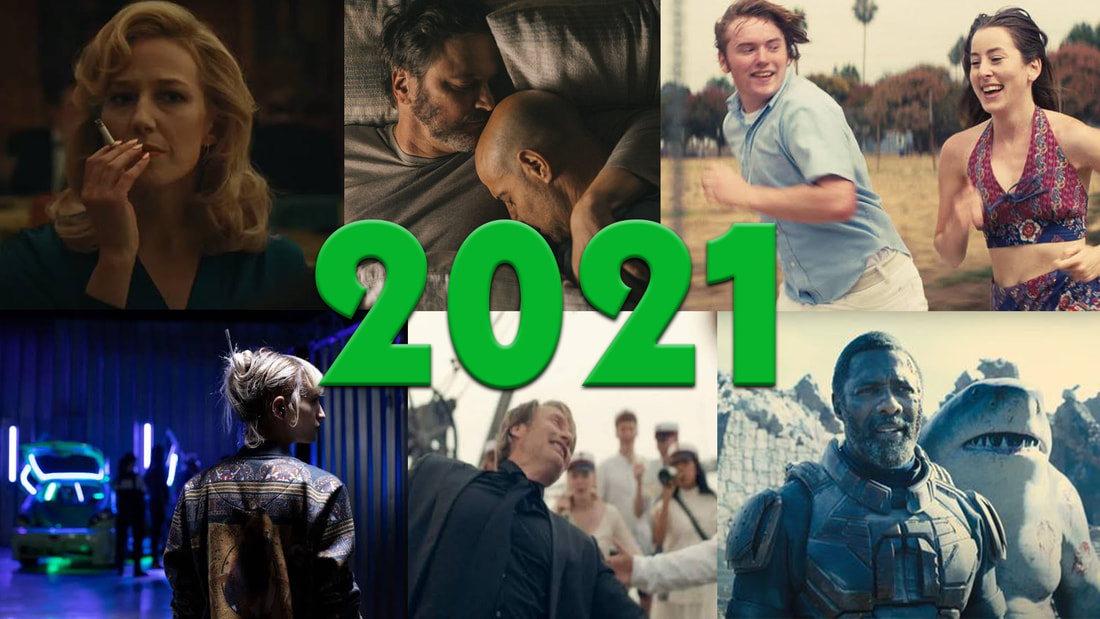
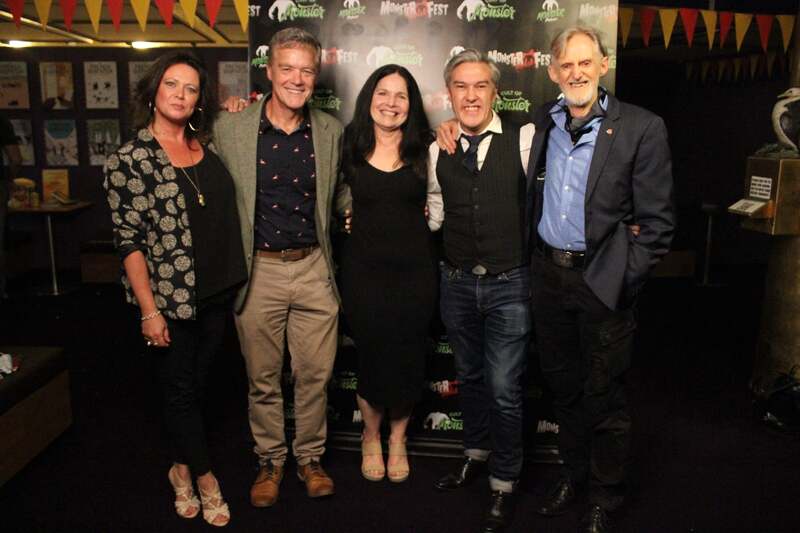
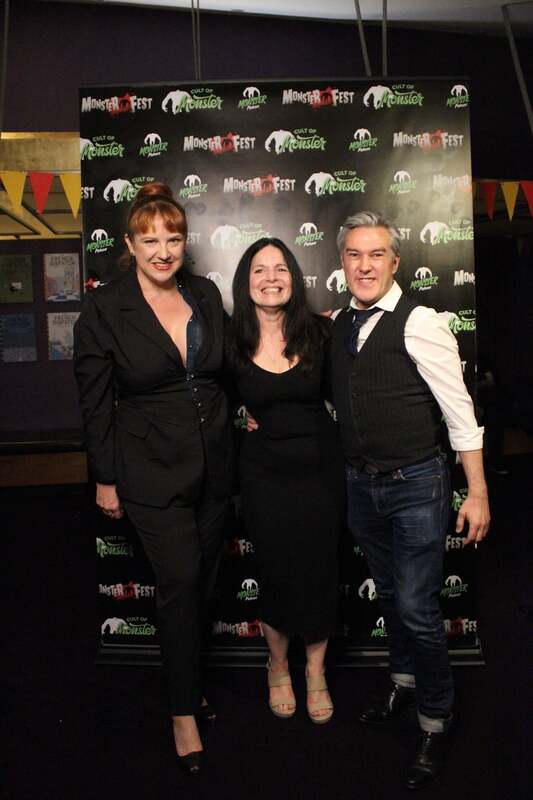
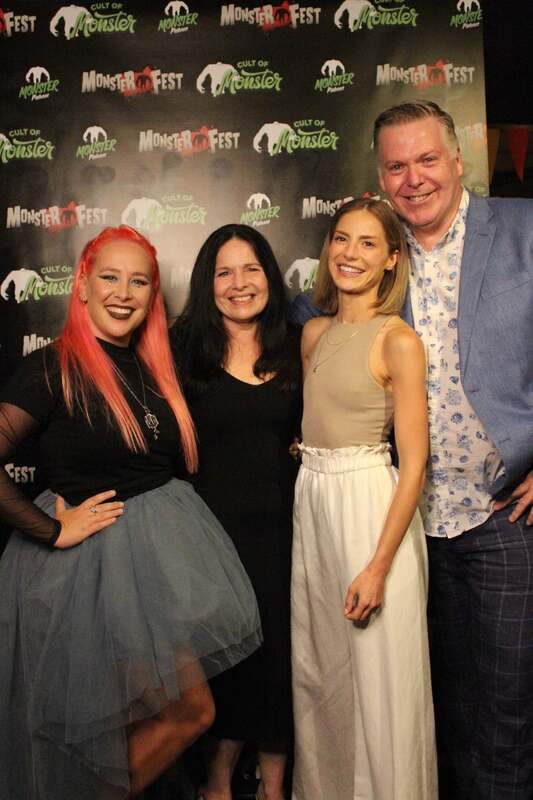
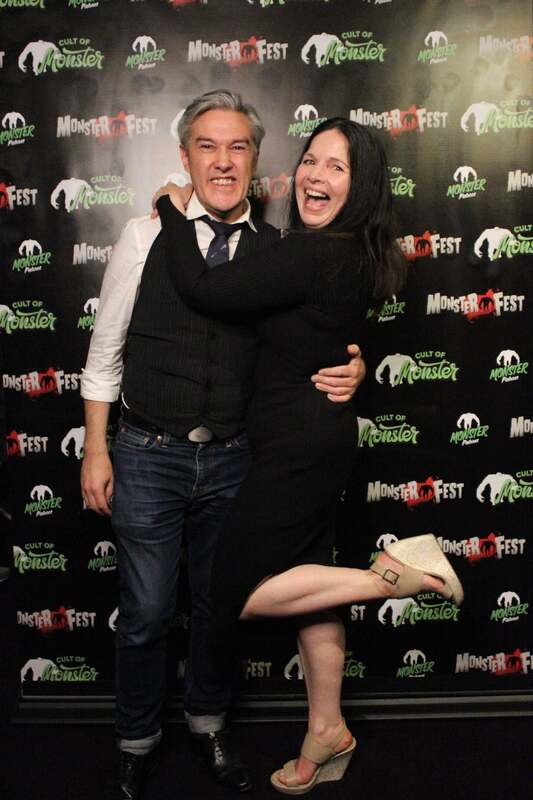
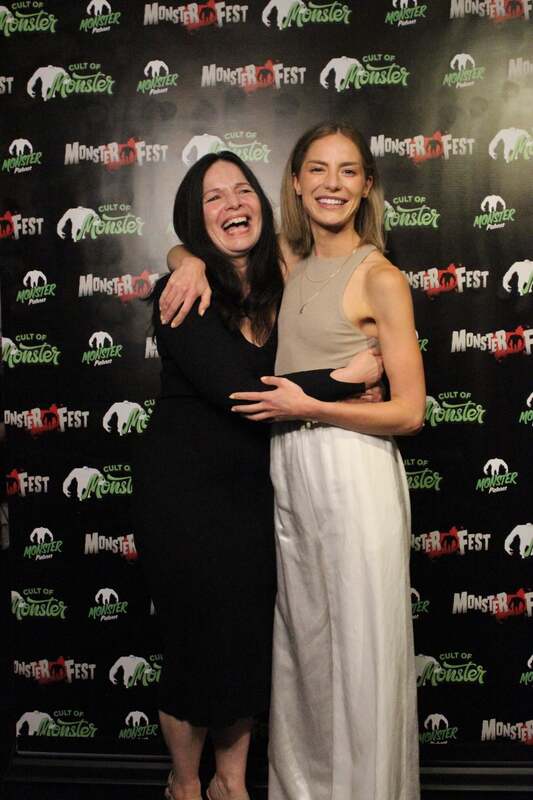
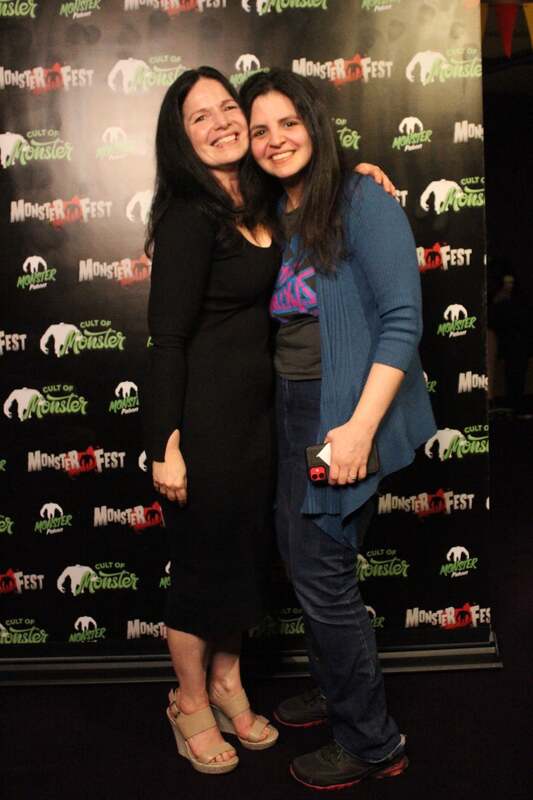
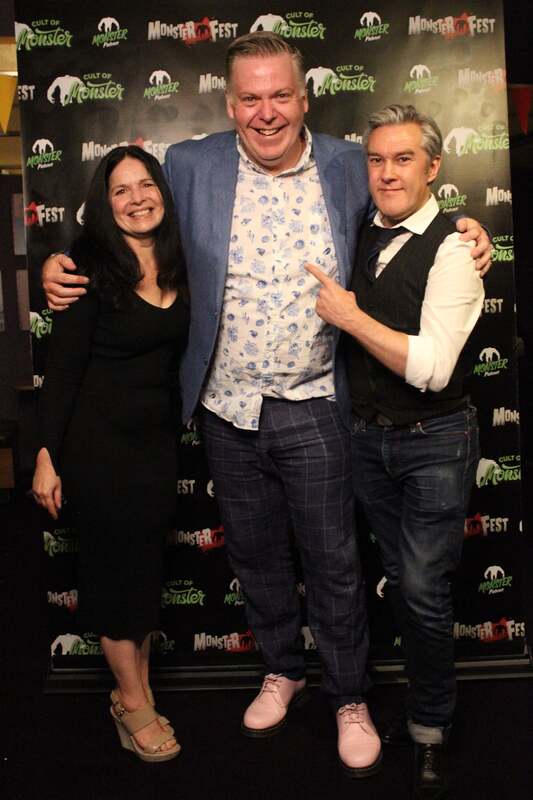
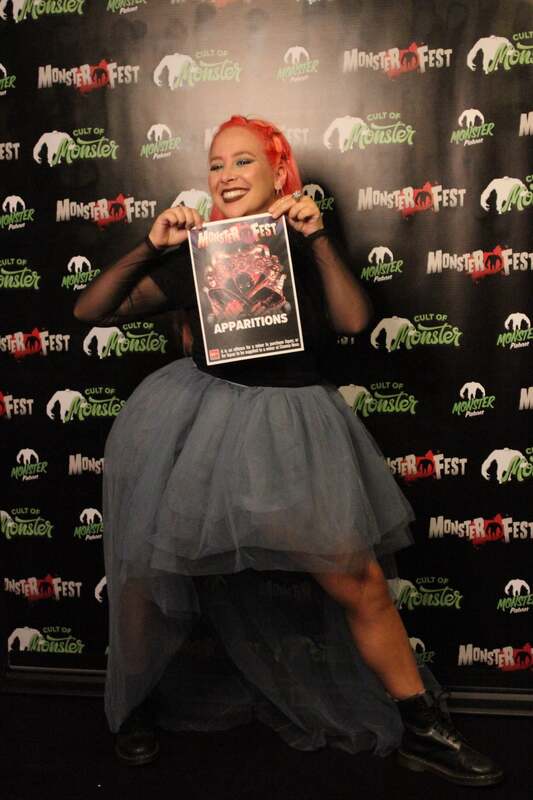
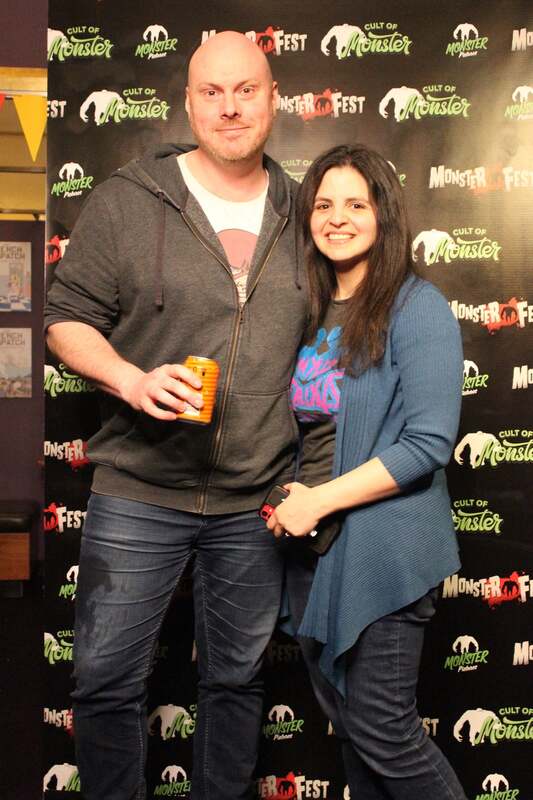
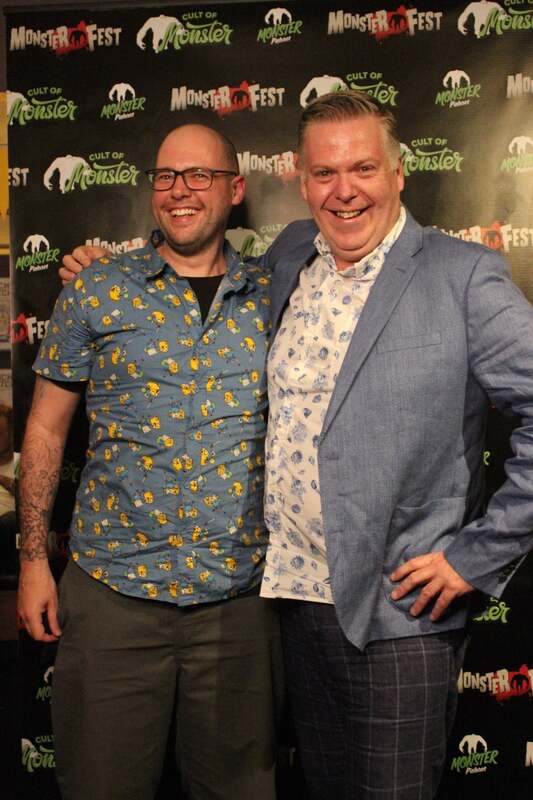
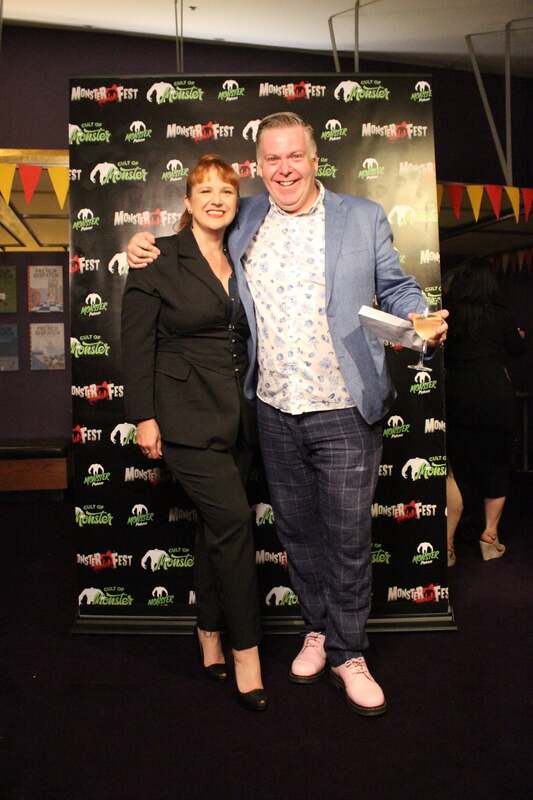
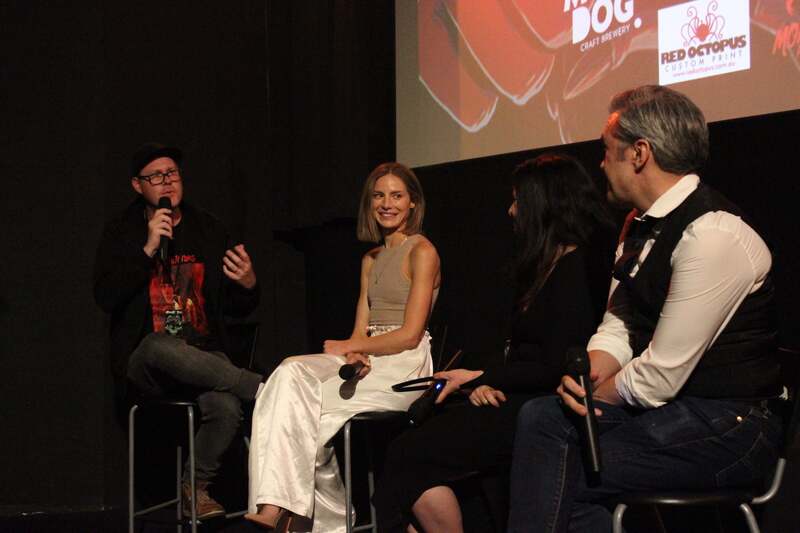
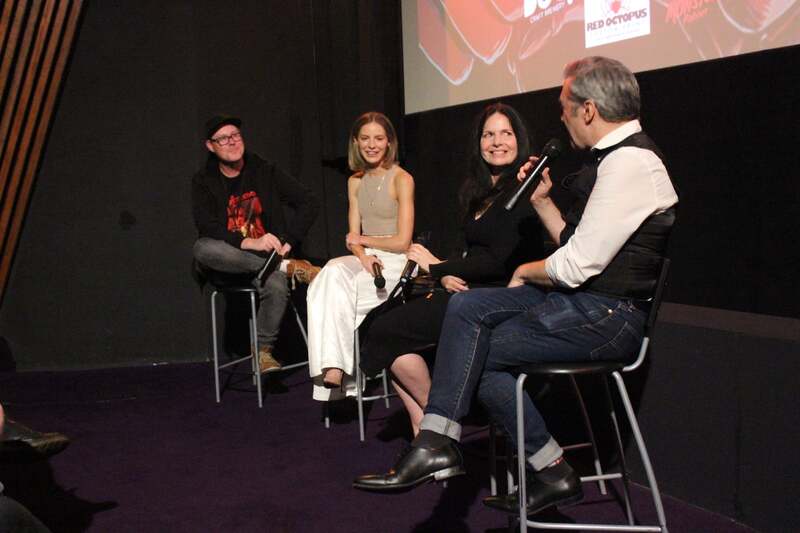
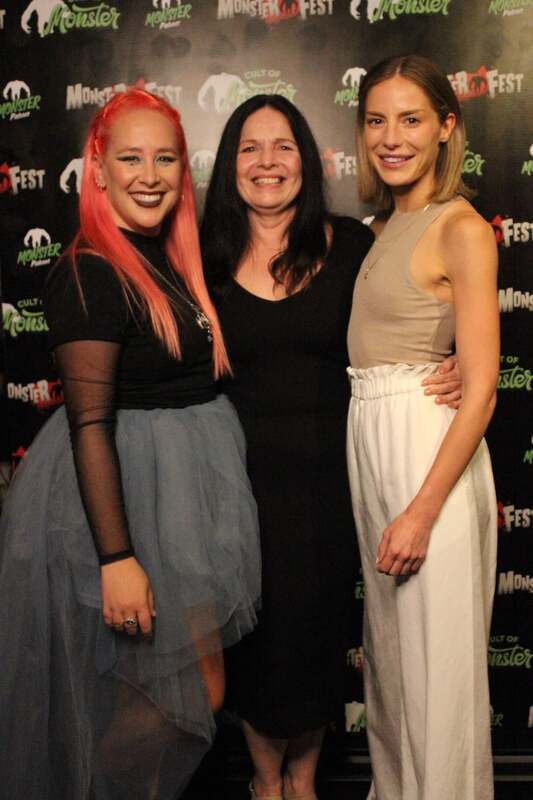
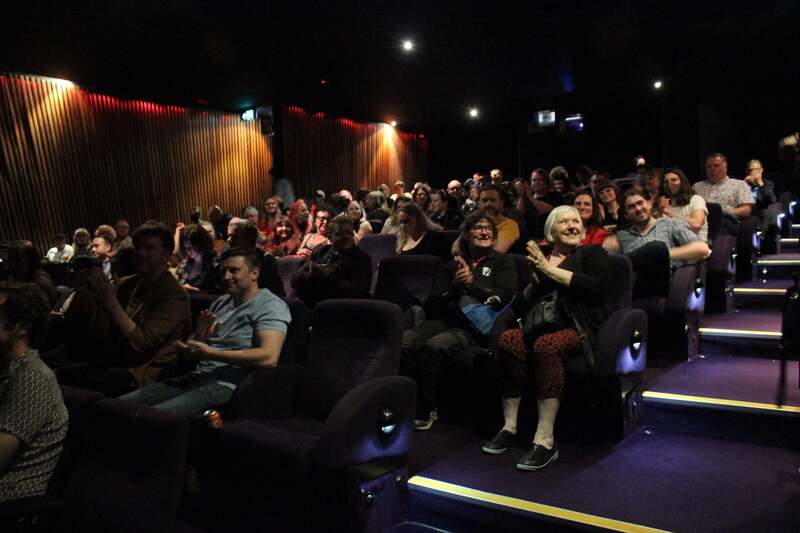
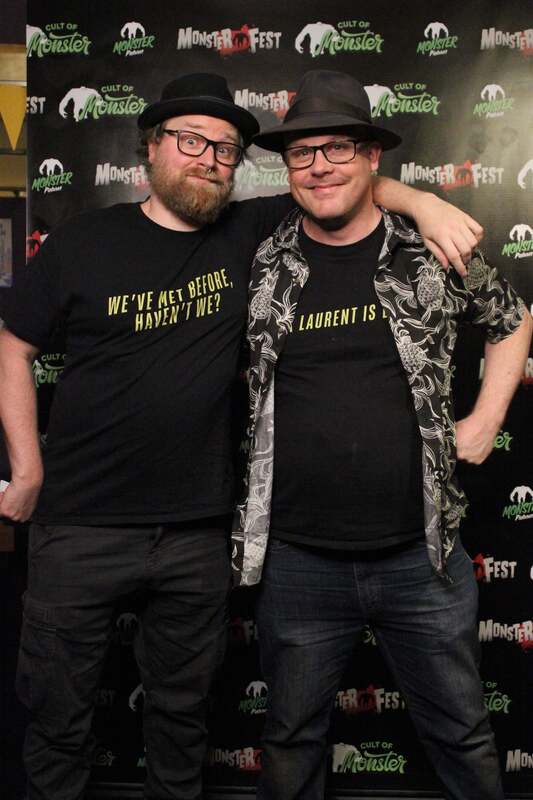
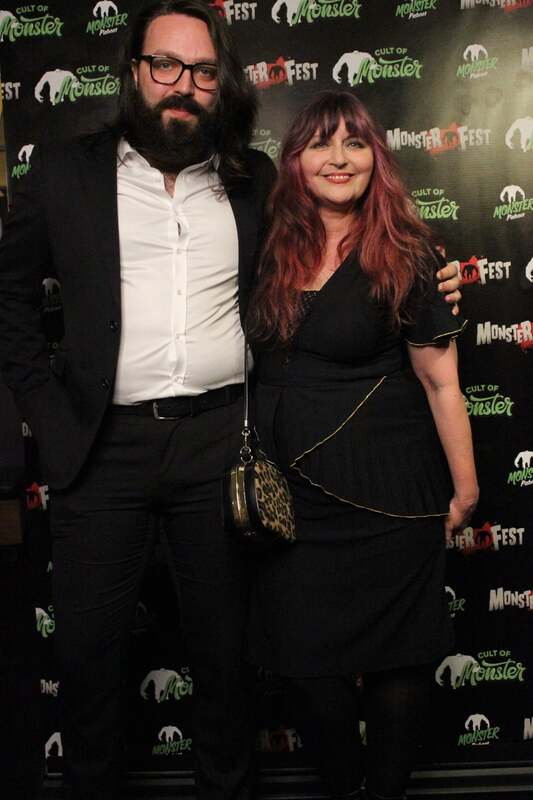
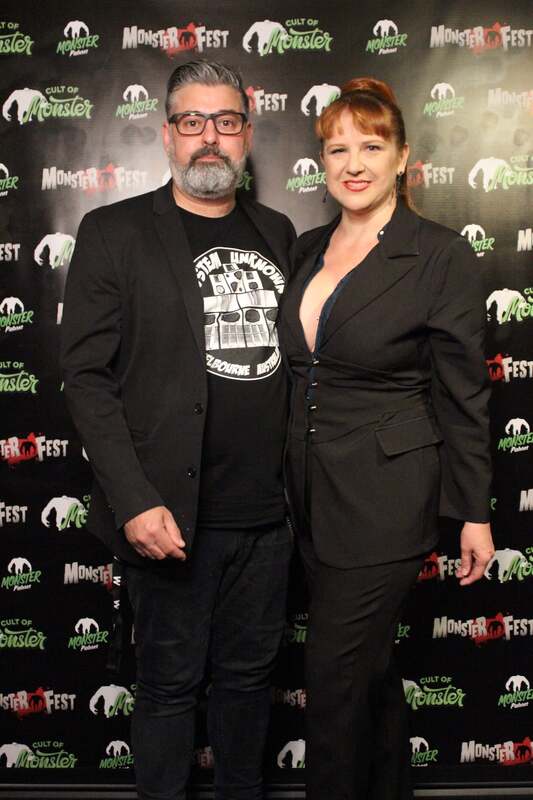
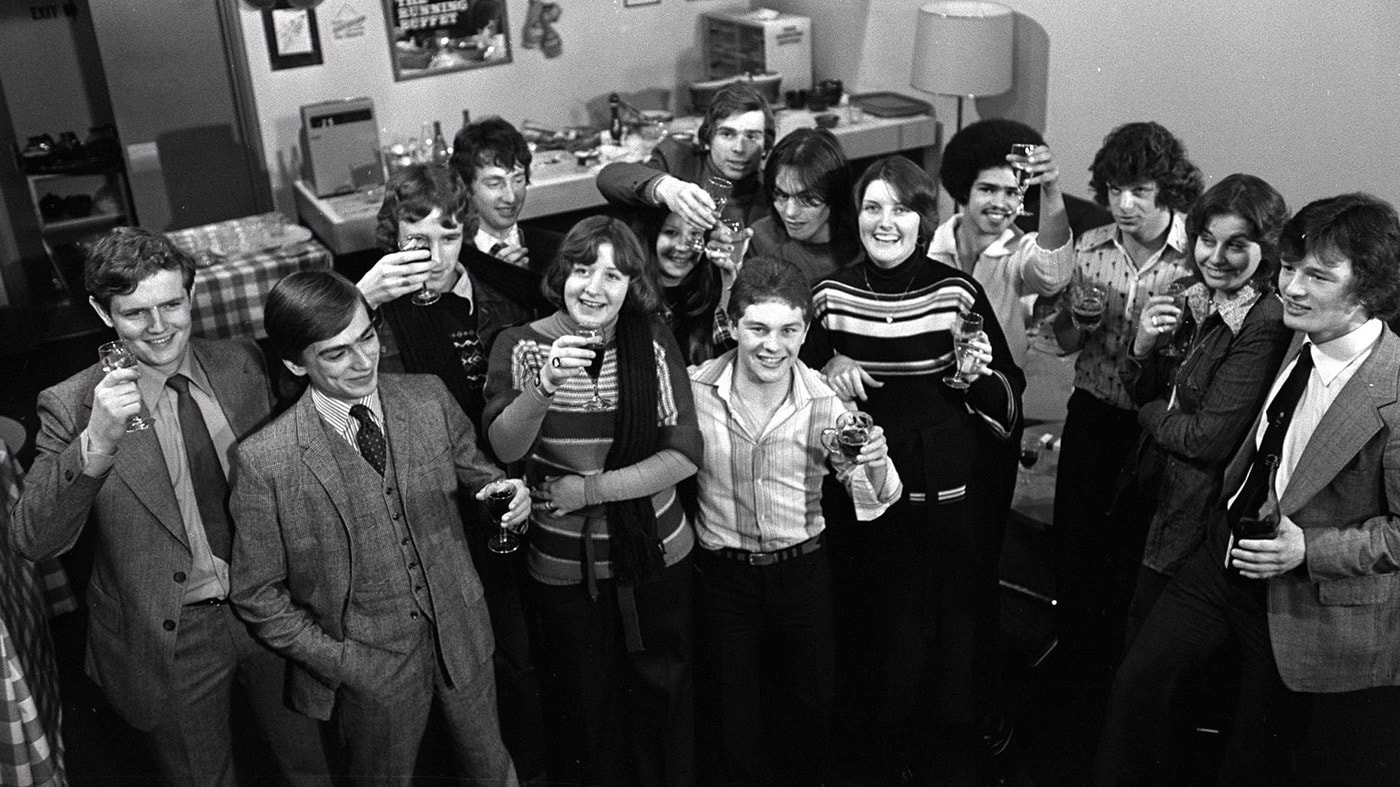








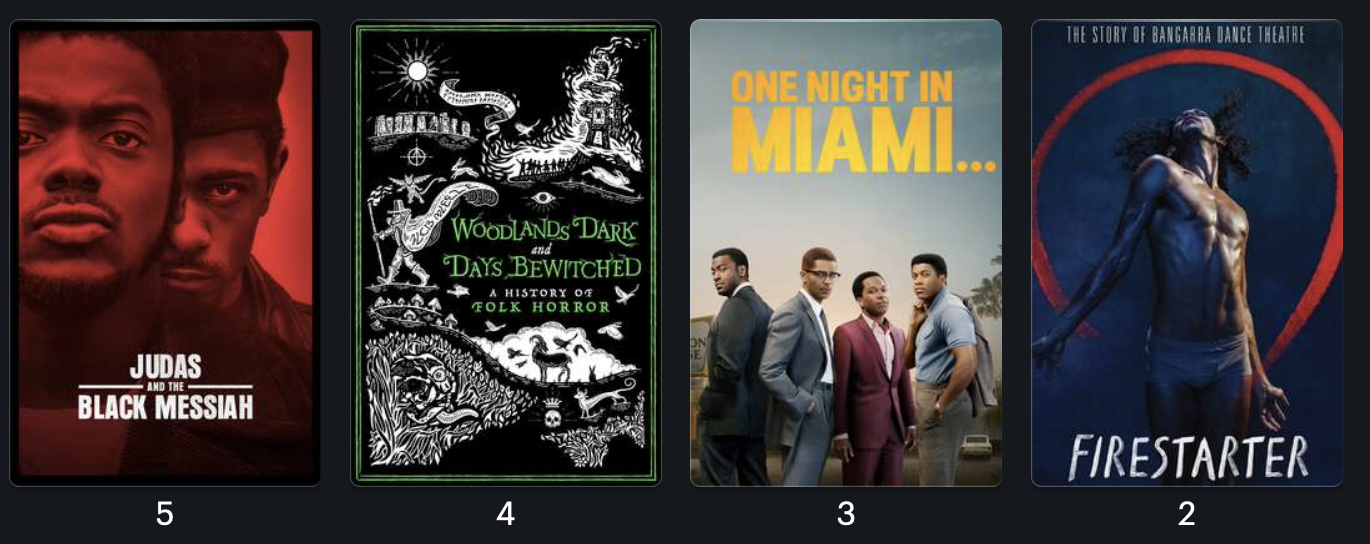
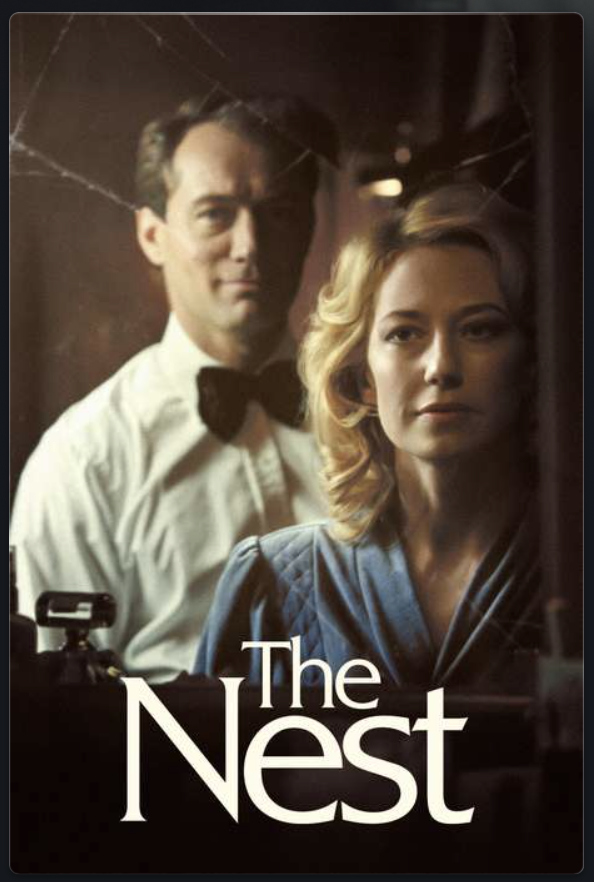
 RSS Feed
RSS Feed